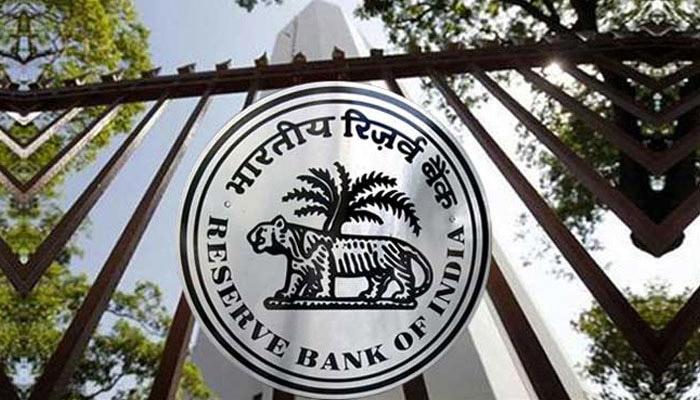Will RBI Disclose Names of Wilful Defaulters?

On November 16, this year, Information Commissioner M Sridhar Acharyulu passed an Order dismissing the Reserve Bank of India’s (RBI) grounds for refusing to furnish the names of wilful defaulters on loans of Rs 50 crore and above. The matter arose from an application under the Right to Information Act, (RTI Act) filed by Sandeep Singh Jadoun, who, apart from seeking the details of wilful defaulters, also sought the details of the failed government projects pertaining to the Ministry of Labour and Employment. While the Order passed by Acharyulu is commendable, a letter written by him to the Chief Information Commissioner, RK Mathur, suggests that all is not well in the country’s highest body for transparency.
Three days after passing the Order against the RBI, Acharyulu wrote to the Central Chief Information Commissioner, RK Mathur, regarding a conversation they had on November 8, about a week before the Order. According to Acharyulu’s letter, it appears that Mathur had come to his chamber to speak about the matter concerning the RBI. Acharyulu’s letter highlighted four observations allegedly made by Mathur, and his responses to them. It should be noted here that the matter in question pertained to a show cause notice issued by Acharyulu on September 20 this year.
Also Watch: I Did Not Violate Any Law in Issuing a Notice to the RBI Governor: Information Commissioner
According to Acharyulu’s letter, Mathur had told him that when a substantial part of an RTI appeal deals with subjects allotted to other Information Commissioners, it should be sent to the other Commissioners. Not doing so would violate the unwritten protocol. To this, Acharyulu’s response was that a matter in appeal cannot be severed. He also stated that he had never sought out the matter, and that it had come to him in routine. Additionally, he stated that this was the first time he had heard of this unwritten protocol.
According to the letter, Mathur also mentioned that Acharyulu’s actions had put another Information Commissioner dealing with the subject in an embarrassing position, and that it should have been avoided. To this, Acharyulu’s response was that an Information Commission’s primary duty is to uphold and implement the RTI Act. The Information Commissioners issue directions to other authorities irrespective of whether the matter was dealt with by another commissioner.
Mathur also allegedly told him that the Central Information Commission (CIC) should speak as one voice, and that there should not be any difference of opinion between two commissioners’ orders. According to Acharyulu, Mathur alluded to a Division Bench Order of the Commission which was contrary to that passed by Acharyulu. In this context, Acharyulu responded by stating that the Division Bench had never decided on the matter, and had adjourned it indefinitely since a similar petition filed before the RTI Act’s existence was pending before the Supreme Court. He then referred to the Supreme Court’s 2015 decision which dismissed 11 petitions filed by the RBI against the CIC’s Orders to disclose information.
Also Read | SC To Hear Loan-Defaulting Corporate Power Producers’ Pleas Against RBI’s Insolvency Mandate Today
The final alleged observation was that Mathur had told Acharyulu that there is no need to speak to the media when the show cause notice is pending, and that the Order should speak for itself. Acharyulu’s response differentiated between a show cause notice and an order. When an order is passed, the matter has been decided. Whereas when a show cause notice is issued, it means that legal proceedings have been initiated. “Speaking to media to explain a legal position about disclosure of wilful defaulters is perfectly legal, proper and required. It is not a breach of any unwritten code. Explaining its legality is a part of being transparent. Calling it a questionable conduct is unfair. Speaking to media to clear the doubts is an ethical exercise in pursuance of transparency. We have a duty to inform the people,” he added.
Acharulu’s letter ended by reiterating the same points, and added a final request i.e. “Please initiate steps to implement the orders of Former CIC Mr Shailesh Gandhi, as confirmed by the Supreme Court in Jayanti Lal N Mistry case, so that the faith of our people in the RTI Act and this institution stands reinforced.”
The November 16 Order
The RBI had refused to share the information citing confidentiality that is mandated in the various banking laws amounted to a ‘fiduciary relationship’ with the other banks in the country. What makes this contention interesting is that on December 16, 2015, the Supreme Court of India, in hearing the RBI’s appeals to various decisions of the CIC relating to the same issue, had put the matter to rest.
Regarding the ‘fiduciary relationship’ which the RBI claimed, the Supreme Court highlighted that the core features of a fiduciary relationship are that one party will be bestowed powers in trust by the other party and that the power will be exercised for the benefit of the other party. An example of such a relationship is that of a minor and guardian. The Supreme Court held that since the RBI is not bound to act in the interest of the banks – whether public or private – its relationship with the banks is purely statutory and not fiduciary in nature.
Also Read | A Dark Shadow Over the Festival of Lights This Year
Acharyulu had passed the Order against the RBI primarily relying on this 2015 decision of the Supreme Court. His Order also made harsh observations against the RBI such as, “When farmers die of shame for recovering a small loan by banks while writing off lakhs of crore of rupees to clean their balance sheets, why banks think that it their legitimate duty not to shame willful defaulters by exposing their names? It’s an absurd and irresponsible argument reflecting anti-farmer and pro-rich bias of bankers.”
However, the malaise alleged by Acharyulu is that the Orders passed by the Central Information Commission are almost impossible to enforce. Considering that a former Chief Information Commissioner had to file a complaint in the commission to have his Orders implemented, it is unlikely that Acharyulu’s Order will be implemented either. This situation highlights the need to have a debate on a mechanism to enforce the decisions of the Central Information Commission.
Get the latest reports & analysis with people's perspective on Protests, movements & deep analytical videos, discussions of the current affairs in your Telegram app. Subscribe to NewsClick's Telegram channel & get Real-Time updates on stories, as they get published on our website.
























